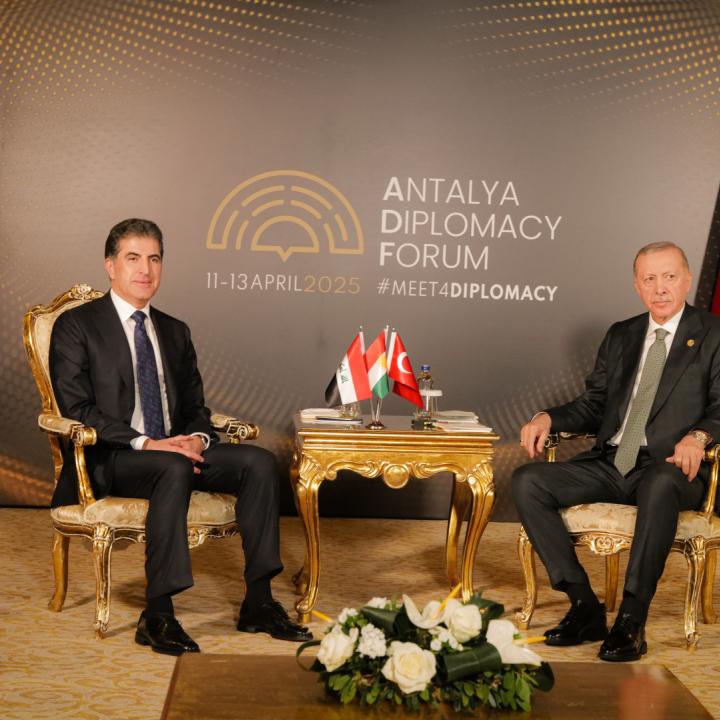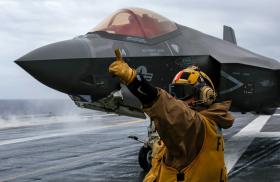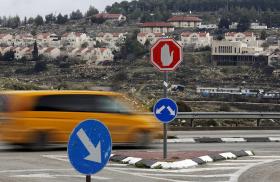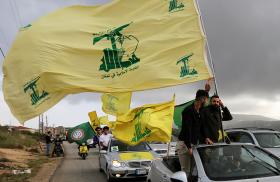
- Policy Analysis
- Fikra Forum
Iraqi Kurds Could Facilitate and Mediate in PKK-Turkish Peace Process

New developments in the PKK-Turkey peace process are a window of opportunity for Iraqi Kurdish parties to stabilize areas of Iraqi Kurdistan affected by the conflict and help facilitate a lasting peace.
In a major development, the Kurdistan Workers’ Party (PKK) leadership announced on May 12 that the group would disband, potentially marking an end to its forty year conflict with Turkey after a peace process began between its imprisoned leader Abdullah Öcalan’s and the Turkish state last October. However, much of the conflict has unfolded not in Turkey but in Iraq—and specifically the Kurdistan Region of Iraq—where Turkey has fought the PKK since the 1980s in a conflict that has threatened civilian lives, prompted internal displacement, and damaged the local economy.
Given the destabilizing role of this conflict there, the Kurdistan Democratic Party (KDP) has proven keen on a successful peace process in Turkey, since it could remove what it sees as PKK’s territorial encroachment in Iraqi Kurdistan. Both the Patriotic Union of Kurdistan (PUK) and the KDP have also played mediating roles in the previous peace processes between Turkey and the PKK.
While the PKK entered the Qandil mountains in Iraqi Kurdistan via a deal with the KDP in 1982, the PKK subsequently extended its presence outside of Qandil in the 1990s and came into conflict with the KDP during the Kurdish civil war. And during Turkish military cross-border operations against the PKK in Iraqi Kurdistan, which have increased since 2019, there have also been skirmishes and tensions between the KDP and PKK in Iraqi Kurdistan, including clashes between the PKK and Peshmerga, assassinations, market fires, and drone attacks on Peshmerga forces. The Turkish-PKK conflict has also led to civilian casualties in Iraqi Kurdistan, such as when eight Iraqi tourists were killed in 2022 in Turkish strikes, sparking diplomatic tensions between Baghdad and Ankara. These activities have been deeply concerning to the KDP, leading it to call on the PKK to return to Qandil and leave other areas of Iraqi Kurdistan in 2021 and offering its support for new peace talks with Turkey in return.
Public support and Hopes for the Peace Process
With this latest peace process, the KDP has again made clear their support, publicly welcoming Öcalan’s February 27 call for the PKK to disarm and expressing the KRG’s readiness to contribute and play a role in advancing the peace process in Turkey, including in meetings with Turkish officials and by inviting former Turkish PM Ahmet Davutoglu, one of the architects of the previous peace process, to the MEPS Forum in Duhok in November. The pro-Kurdish Peoples' Equality and Democracy Party (DEM Party) Imrali delegations have visited the Kurdistan Region three times so far to relay messages from the PKK leader Öcalan.
“We support this process with all our ability and we are ready to do whatever is needed of us,” KDP President Masoud Barzani stated on May 15, while drawing attention to the unique opportunities of this round. “What is happening now is really different from previous years. This time, almost all parties in Turkey, those in power and those in opposition, have the same voice that this issue must be resolved."
KDP efforts to engage all stakeholders in the process, especially on the Kurdish side, have also involved meetings with the Syrian Kurdish presence; on January 16, KDP President Masoud Barzani and Syrian Democratic Forces (SDF) Commander General Mazloum Abdi met in Erbil, a meeting which would have not been possible without current peace talks in Turkey, and in which KDP President Barzani raised Turkish demands for the PKK’s expulsion from Syria. Kurdistan Region President Nechirvan Barzani and KDP President Masoud Barzani also sent representatives to the Kurdish Newroz celebrations in Kurdish-majority city of Diyarbakir in southeastern Turkey on March 21 as a sign of support for the process. President Nechirvan Barzani may have also helped facilitate an April 10 meeting between the DEM party and Turkish President Erdogan.
A peaceful end to the Turkish-PKK conflict in Turkey would have a positive impact across the border in Iraqi Kurdistan and beyond: ending the armed conflict will improve regional stability, strengthen the regional economies, and support Trump’s policy goals to bring peace and end local ‘forever wars’. Therefore, the KDP officials hope if both the PKK and the Turkish army withdraw from the Kurdistan Region, it would lead to more stability in these border areas, and remove a point of tensions between Turkey and Iraq.
If the PKK is removed from areas in Duhok, this could also help eventually revive the local economy and domestic tourism in these border areas, which are abundant in cold mountain streams. More than 400 villages in Duhok province have been evacuated due to the conflictAreas in the Duhok province have attracted tourists from other parts of Iraq during the hot summer months, such as Geli Sherane near Amedi, in spite of the active PKK-Turkish conflict in the area.
Since 2019, Turkey has also expanded its military bases and posts (having over 200 military positions in areas mostly near KDP areas) in the Kurdistan Region, and increased its drone strikes. When the PKK has withdrawn from these areas, coordination between the KDP and Turkey as well as Baghdad and Turkey to hand over these bases to the Peshmerga forces or Iraqi border guard forces would help remove a sticking point in Turkish-Iraqi relations. Previously, Baghdad has called for the removal of both the Turkish military and the PKK from Iraqi territory, and Turkey has promised to hand over the Bashiqa base in Nineveh to Iraq last year. A lack of operational need on Turkey’s end may help speed this process along.
Addressing Demobilization and Reintegration of PKK Fighters
However, the biggest question is how to demobilize the estimated 5,000 PKK armed fighters in Iraqi Kurdistan, and it remains unclear where the PKK leaders and fighters will move to in the future if disarmament will take place. “If all these fighters will stay in Kurdistan, give themselves up, or if they go to Europe, that part I don’t know,” one KDP official said. In this case, both the KDP and the KRI’s other leading party, the Patriotic Union of Kurdistan (PUK), can play a role in hosting demobilized former PKK cadre members in Iraqi Kurdistan in their respective territories of control, especially wing they often do not even have legal documents to be able to travel abroad.
The KDP and PUK could play a role in the disarmament process, with heavy weapons held by the PKK transferred to the PUK’s and KDP’s Peshmerga forces. Turkish media has already suggested that the disarmament of the PKK could also be overseen jointly by the KRG and Turkey.
These parties have some experience managing the disarmament of non-state actors in its territory, as with the Iranian Kurdish parties who had fled from Iran after the Islamic revolution in 1979 to the Kurdistan region of Iraq, and handed over their weapons to the Peshmerga based on the March 2023 Iran-Iraq security agreement. A similar model could be followed with the PKK, removing them from the border areas and mountains and settling them as civilians in temporary camps while replacing their positions with members of the Kurdish Peshmerga Forces of the Iraqi Border Guard.
In terms of the ultimate place of residence for these former fighters, the PUK and KDP can give these PKK members residency cards that would allow them to integrate in the local society and find work in the local economy. There are already at least hundreds of demobilized ex-PKK commanders and fighters (as well as ex-SDF fighters) living in the Kurdistan Region of Iraq, where they have found roles in the Iraqi Kurdish military forces but also civilian jobs, including in the media, construction sector, hospitality sector. Some like Aziz Waysi, a former PKK commander, joined the KDP’s Zeravani security forces, while others picked up civilian life, like Osman Ocalan, the brother of Abdullah Ocalan, who lived in PUK-controlled Koya before his death and used to run his own political party. Other former PKK members have also successfully sought asylum in Europe, especially in Germany.
Former PKK fighters may also be able to play a role in addressing some of the challenges to the region this conflict will leave behind. The war between Turkey and the Kurdistan Workers’ Party (PKK) has lead to an estimated 96 square miles of minefields in Iraqi Kurdistan, often just a few hundred yards from villages. Former PKK fighters could also be employed to contribute to demining efforts. One of the most famous deminers during the Peshmerga forces’ war against ISIS was a former PKK fighter. Dr Sait Çürükkaya (Dr. Süleyman) saved hundreds of Peshmerga lives through demining, dying in a hospital in 2016 after being injured by an explosion in the village of Tishirab. Other agencies that could play a role in demining are Kurdistan Region’s Mine Actions Agency (IKMAA), MAG International and demining experts of the Peshmerga forces.
A solution should also be found for the Kurdish refugee camp in Makhmour, which hosts more than 12,000 Kurds who fled Turkey in the 1990s and where PKK fighters are also present, and which has been regularly bombed by Turkey. The KDP may be able to leverage its relationship with Turkey to provide the refugees the option to safely return to Turkey or be allowed to settle in the Kurdistan Region, with the ultimate goal of closing the camp.
The KDP also hopes that the peace process could make it easier to implement the 2020 UN-backed Sinjar agreement (which is also supported by the United States) to normalize the situation in Sinjar and remove PKK-affiliated groups or integrate individual fighters in the local police. The PKK’s presence and its alliance with Iran-backed Popular Mobilization Forces (PMF)-linked groups in Sinjar have provided Iran with another entry point into Iraq and strained Iraq-Turkey relations. Turkey has also accused Iran in the past of supporting the PKK. The local Shingal Resistance Units (YBS), believed to be affiliated with the PKK, has been active in Shingal (Sinjar) since 2014 in the fight against ISIS and has defended the Yezidi community in Sinjar. Turkey has regularly bombed their members, killing its top leaders. A successful peace process could facilitate the implementation of the Sinjar agreement, designed to establish a clear administration framework for this territory contested between Erbil and Baghdad.
The peace process in Turkey provides an opportunity to bring more peace and stability not only to Turkey, but also to the Kurdistan Region of Iraq that has borne the brunt of the fighting between the PKK and Turkey since 2019. This process could open up solutions to a series of issues there, including Kurdish refugees from Turkey stuck in Makhmour camp, a longstanding point of tension between Iraq and Turkey, and the Sinjar agreement. The Kurdish parties in Iraq can also play a key role in facilitating disarmament of PKK fighters, and help in the reintegration of ex-PKK fighters by giving them access to identity cards and access to the local job market. Iraqi Kurdish parties support the peace talks between Turkey and the PKK because they believe the peace process could lead to the revival of local economy and tourism, and end PKK control of territory in Iraqi Kurdistan. This enthusiasm could be encouraged and supported by other stakeholders and international actors, such as the UN mission in Iraq, in order to ensure the infrastructure is in place in Iraqi Kurdistan to provide a permanent end to this decades-long conflict.



